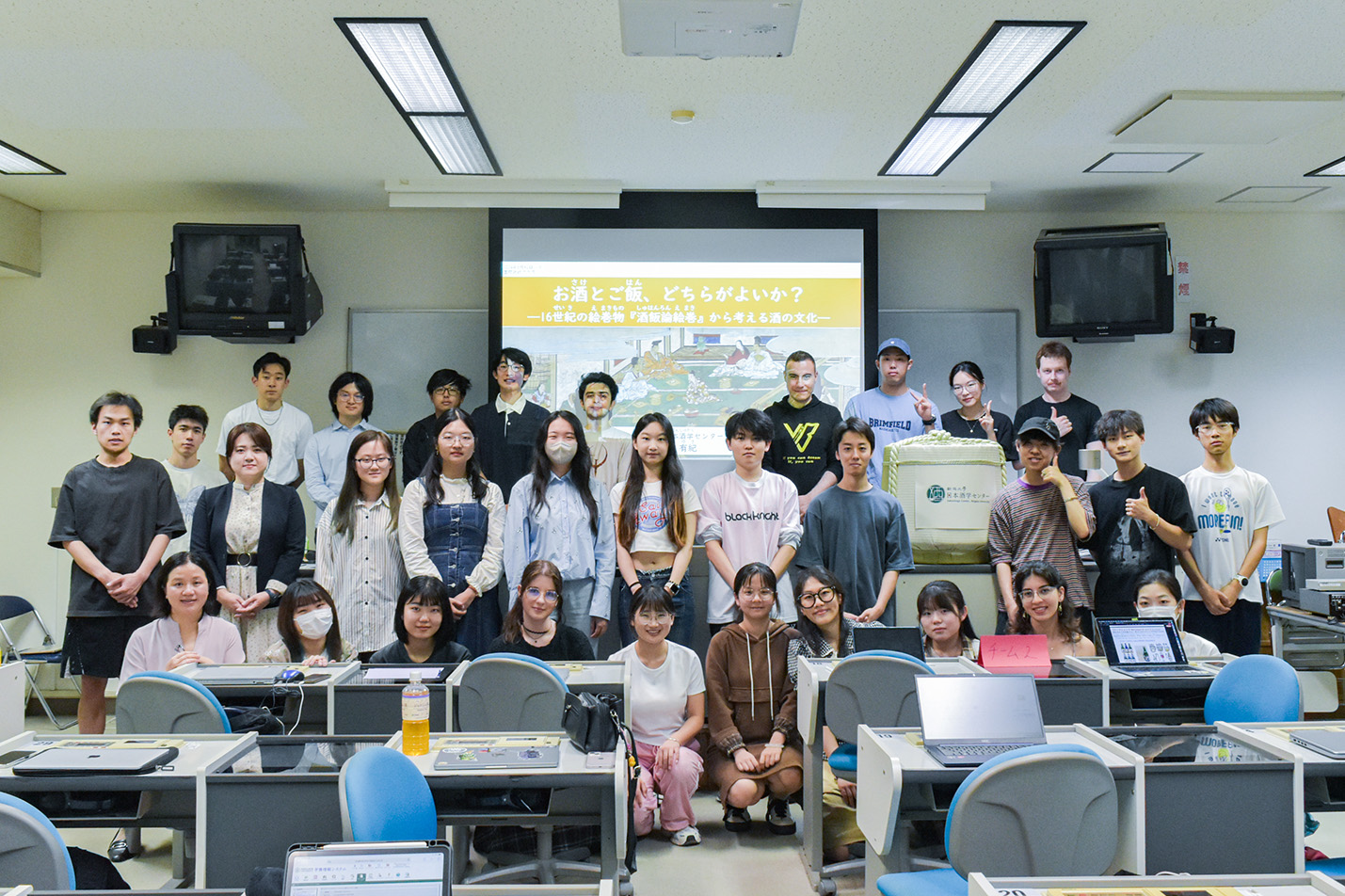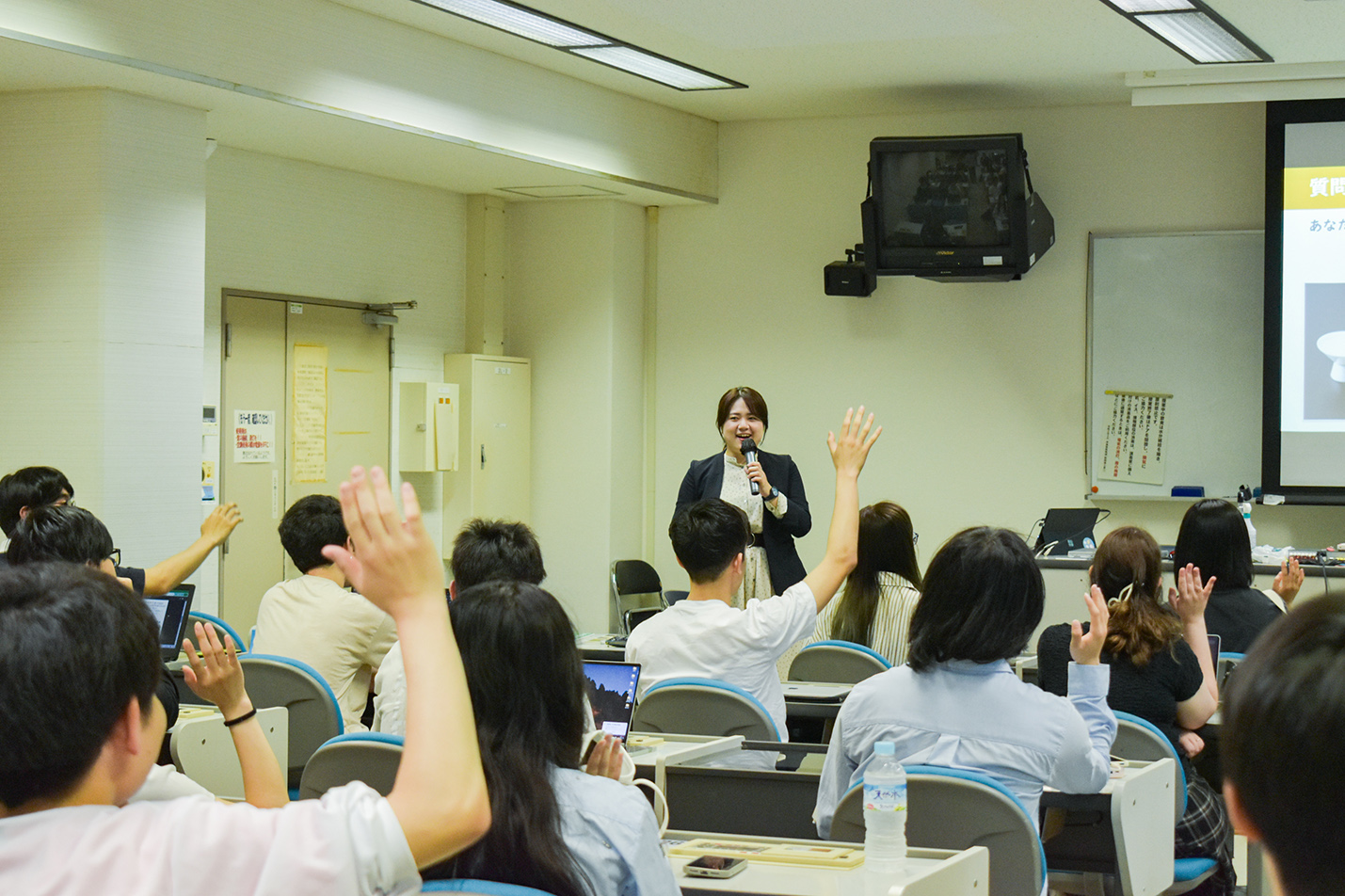Dr. HATA Yuki gave a lecture as a guest lecturer in “Intercultural Collaborative Learning A: Cross Cultural Understanding through the Collaborative Learning with International Students (Niigata University G-code Course: 240G3258)”
On June 10, 2024, HATA Yuki, Ph. D., Specially Appointed Assistant Professor, Sakeology Center, gave a lecture as a guest lecturer in “Intercultural Collaborative Learning A: Cross Cultural Understanding through the Collaborative Learning with International Students (Niigata University G-code Course: 240G3258)” (*1) for which MENG Yun, Ph.D., Associate Professor of International Education Center, Cooperating Faculty Member of Sakeology Center, is the faculty in charge.
In this course, both Japanese students and international students from various countries such as China, Taiwan, Hong Kong, Romania, Lithuania, Germany, and Turkey are participating. Dr. Hata was invited as a guest lecturer for the second time following last year.
The class started with an icebreaker on how to use rice, the raw material of sake, and many students actively answered like “senbei” (rice crackers), “omochi” (rice cakes), “gyudon” (beef and rice bowl) and so on in a very lively discussion.
Then, Dr. Hata gave a lecture on Japanese sake culture through “Shuhanron Emaki” (Illustrated Scroll of the Sake and Rice Debate), which was created in the first half of the 16th century and depicted scenes of banquets and kitchens of the time. Afterwards students discussed their home countries’ alcoholic beverages, drinking habits and cultural backgrounds in groups, and then presented their findings in both Japanese and English. They introduced various alcoholic beverages such as sake, shochu, wine, beer, baijiu, palinka, mead, raki, etc. and their cultures. Through this kind of group work on alcoholic drinks, they had a great opportunity to deepen their understanding and discussion of each other’s customs and cultures.


(*1) It is a course that students from Niigata University and partner institutions domestically and internationally engage in an in-depth exploration of global and environmental challenges, specifically focusing on Multicultural Symbiotic Societies. Utilizing PBL(Problem-Based/Project-Based Learning) methodologies, the course aims to find solutions to these challenges. Also, the course is offered at the 3rd period of Mondays during the 1st and 2nd terms.

